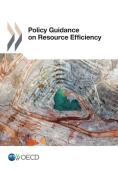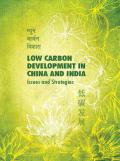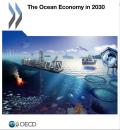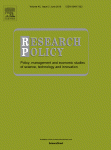The authors document three remarkable features of the Opower program, in which social comparison-based home energy reports are repeatedly mailed to more than six million households nationwide. First, initial reports cause high-frequency "action and backsliding," but these cycles attenuate over time. Second, if reports are discontinued after two years, effects are relatively persistent, decaying at 10-20 percent per year. Third, consumers are slow to habituate: they continue to respond to repeated treatment even after two years. The authors show that the previous conservative assumptions about post-intervention persistence had dramatically understated cost effectiveness and illustrate how empirical estimates can optimize program design.
The policy summary for this paper is available here.

This report responds to the request by G7 Leaders at the Schloss Elmau Summit in June 2015, for the OECD to develop policy guidance on resource efficiency. Establishing a resource efficient economy is a major environmental, development and macroeconomic challenge today. Improving resource efficiency by putting in place policies that implement the principles of reduce, reuse, recycle (the 3Rs) is crucial to improving resource use, security and competitiveness while diminishing the associated environmental impacts.

With the recognition on the importance of partnership and collaboration to tackle climate change, the project on Low Carbon Development for China and India seeks to understand learnings on options, barriers and success stories on implementability of policies and programmes promoting low carbon development in China and India.
Based on an understanding of similarities and differences between China and India, in 2012, The Energy and Resources Institute of India (TERI), National Center for Climate Change Strategy and International Co-operation, Central University of Finance and Economics and Zhejiang University launched one of the first collaborative efforts between research institutes in China and India on low carbon development. The intended outcome of the project is supporting policy development by facilitating south-south cooperation, creating relevant knowledge and building capacities.


The paper examines the relationship between green innovation and employment from data taken from the Spanish Technological Innovation Panel (PITEC) for period 2007–2011. The increasing relevance of environmental issues for the Spanish economy, its unemployment problem and the uniqueness in its innovation structure make it a proper and interesting context to investigate green innovation dynamics. The authors find a positive relationship between green innovation and employment, and the relationship is stronger for firms in the so-called ‘dirty’ industries. In addition, they show that the relationship is positive for firms that introduce green innovation voluntarily, as compared to firms that introduce green innovation merely to comply with regulations. A positive and significant relationship is also found between employment and firms that report an increase in the degree of importance paid to green innovation.
